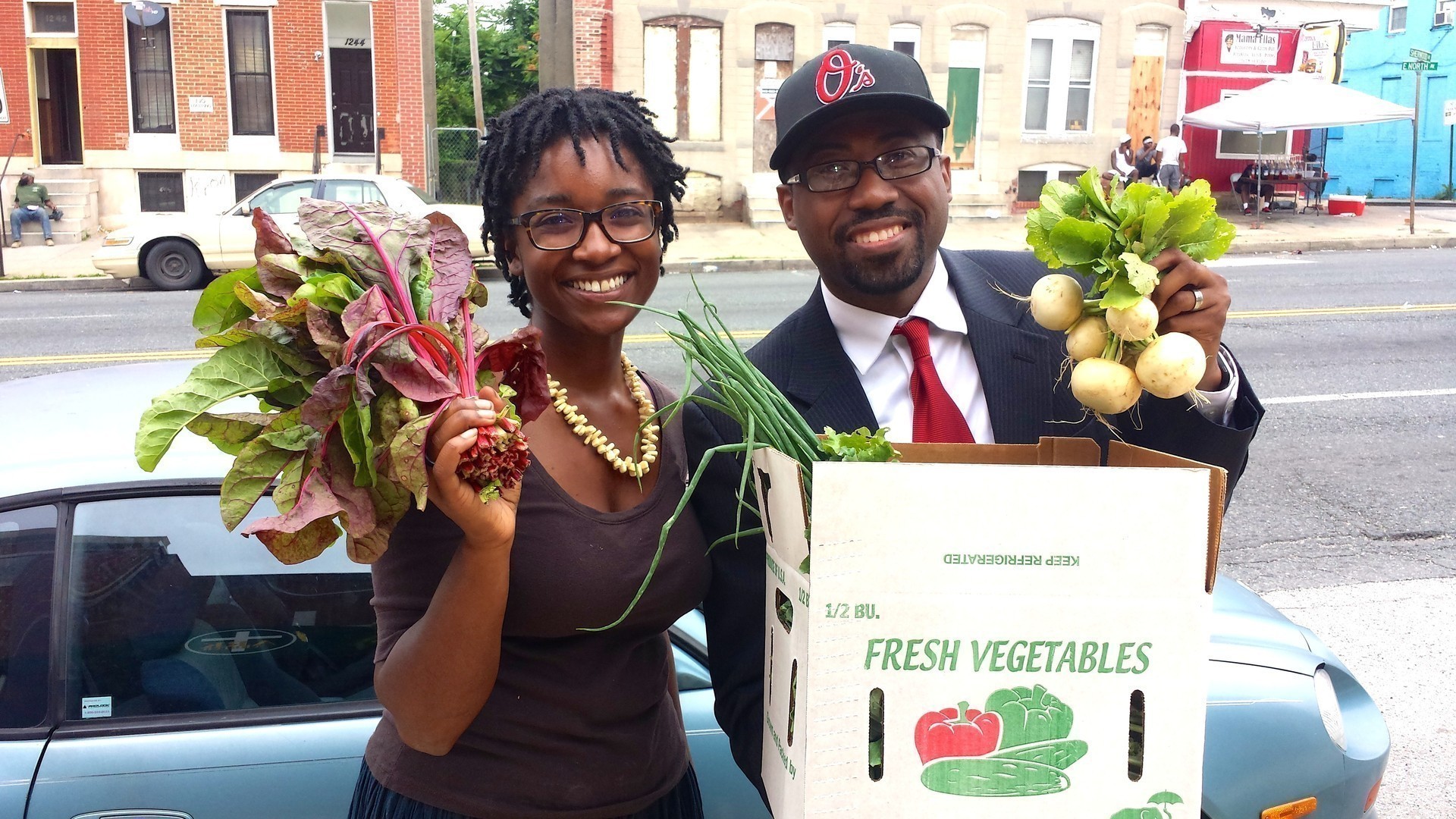Grocery shelves are empty across the country, a clear sign that Black people must become self-reliant. Well before the ‘rona craze, however, a network of Black churches chose self determination for Black communities, through agriculture. The Black Church Food Security Network (BCFSN) is empowering Black communities, farmers and congregations. Love them or hate them, Black churches are anchor institutions. They can be anchors of security and power or simply deadweight: BCFSN chooses the former.
BCFSN works with congregations to establish gardens and agricultural projects on Black Church-owned land. The Network links farmers with congregations for niche farmer’s markets, which take place inside of local houses of worship. They conduct “asset-mapping of Black Churches and the neighborhoods where they are located to help leverage their resources and build power for historically marginalized Black communities.” The Rev. Dr. Heber Brown is the founder of BCFSN. A Baltimore native, Brown knows firsthand the challenges families face accessing food. Further, he understood that Black people have no ownership over the food or food systems they interact with. This isn’t just about “sweet potatoes, it’s about power.”
Food is power. In this moment, when families– even those with money– are at the mercy of a grocery store’s supply chain, those with the ability to grow their own food have serious flex. The farmer feeds the nation, not the banker. Through BCFSN, Dr. Brown is determined to shift the power dynamic, placing Black institutions in a position of strength. Even in the poorest Black neighborhood, there are an abundance of Black churches and they often have plenty of land. Many have underutilized kitchens and plenty of other assets. BCFSN sees these churches as potential juggernauts and by organizing them, is creating a base of power in Black neighborhoods.
The approach of BCFSN is radical and yet ancient: own the land, farm the land and prosper, together. Black churches are anchor institutions, often with untapped resources. Through BCFSN, Black churches can become sources of nutrition, literally. They can also become an economic engine in Black communities, boosting the local economy. BCFSN is strengthening Black farmers and ensuring that the most vulnerable among us are fed. In this time of great uncertainty, Black churches must shift: feeding the soul is fine but it’s time to feed the stomach and the local economy.








